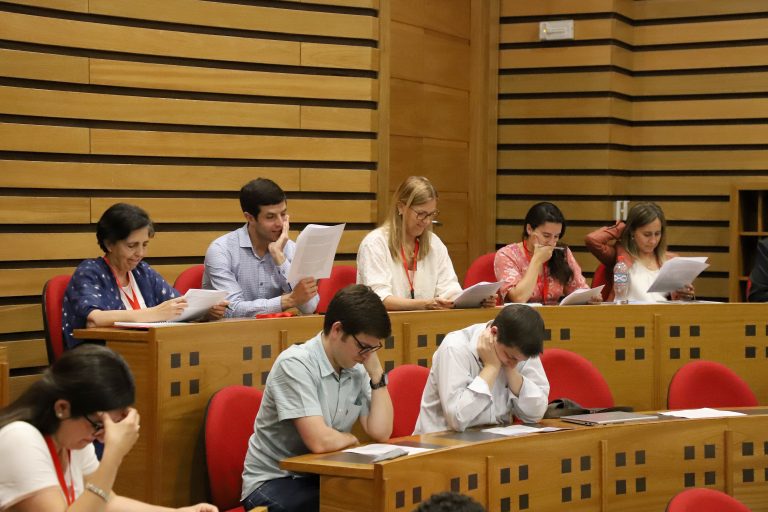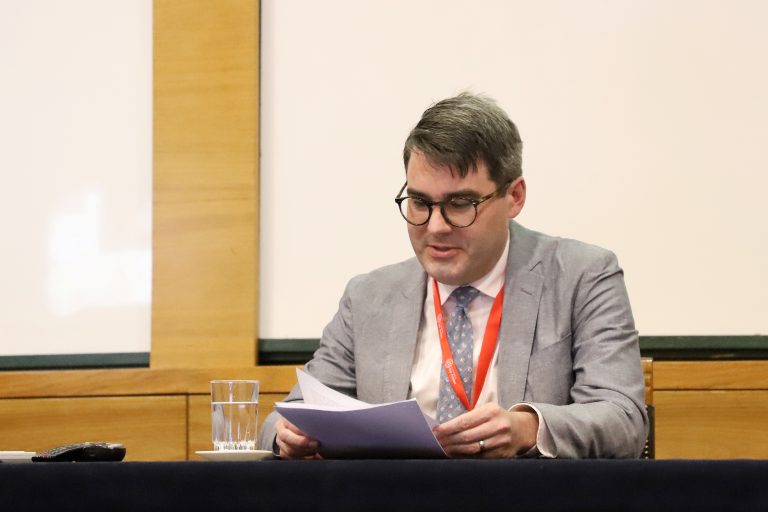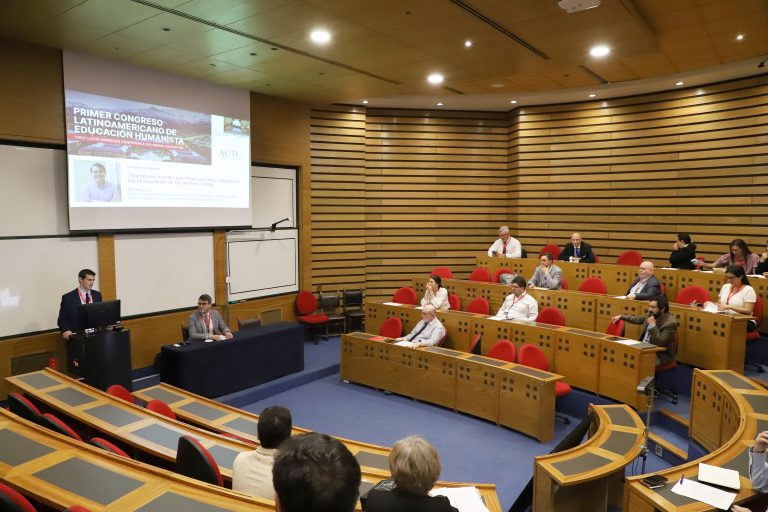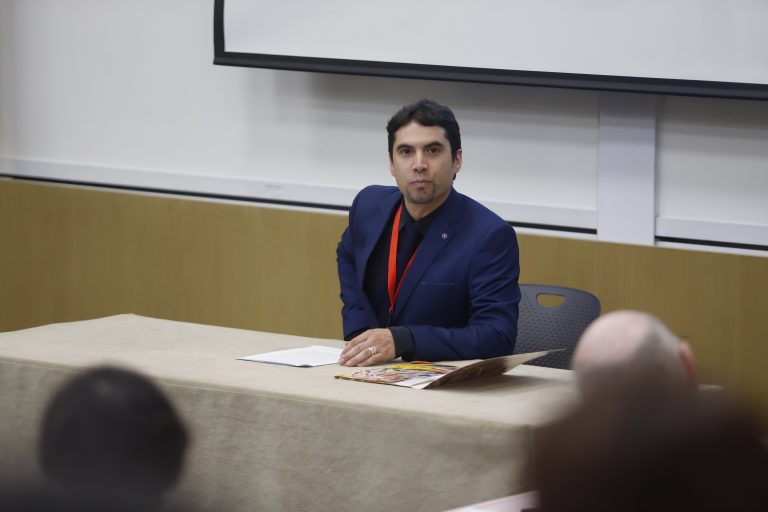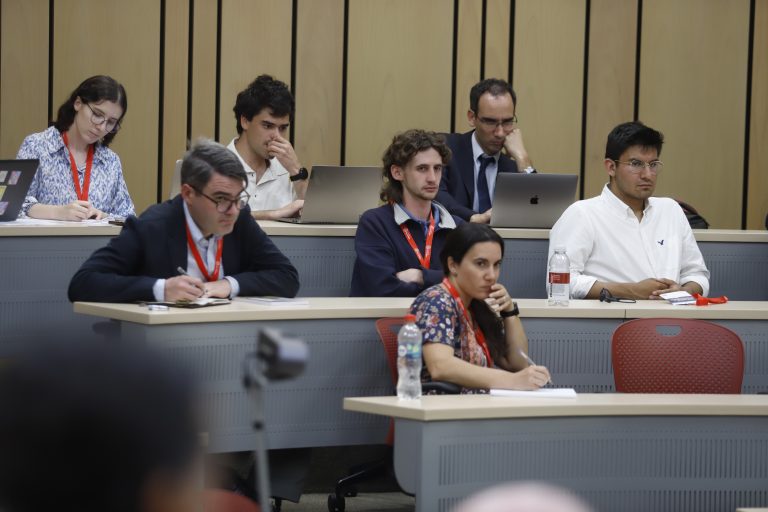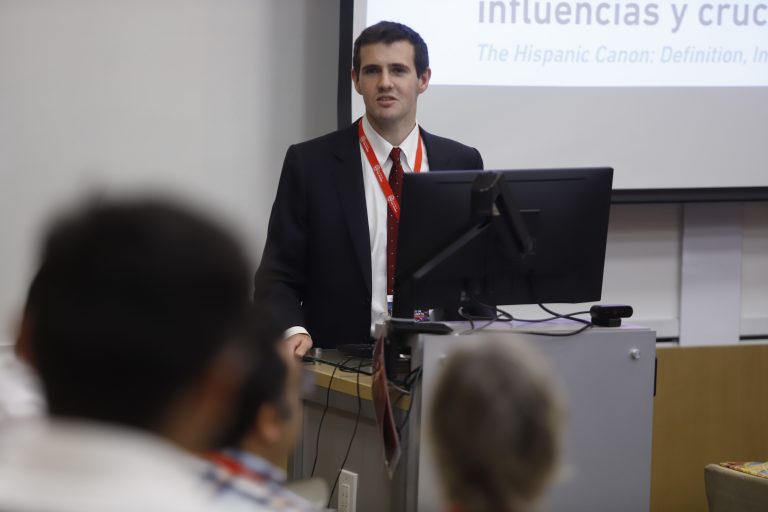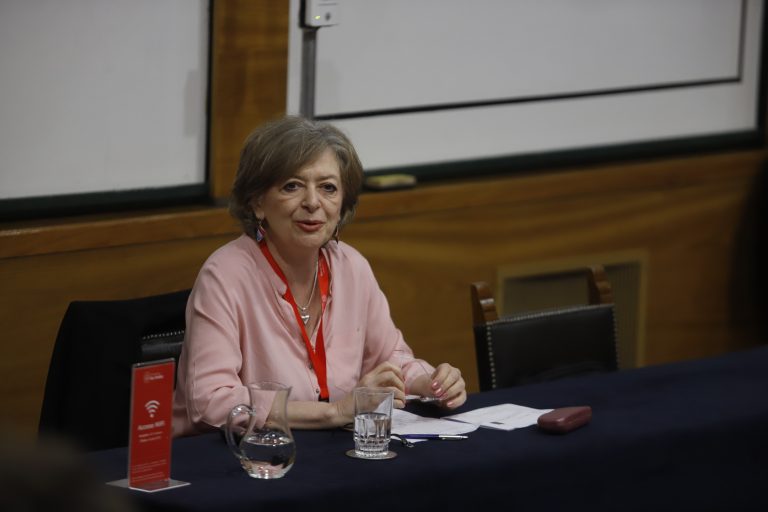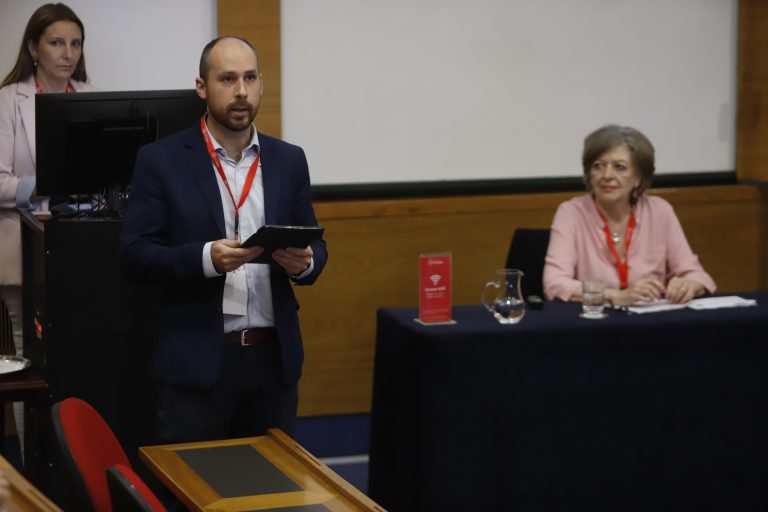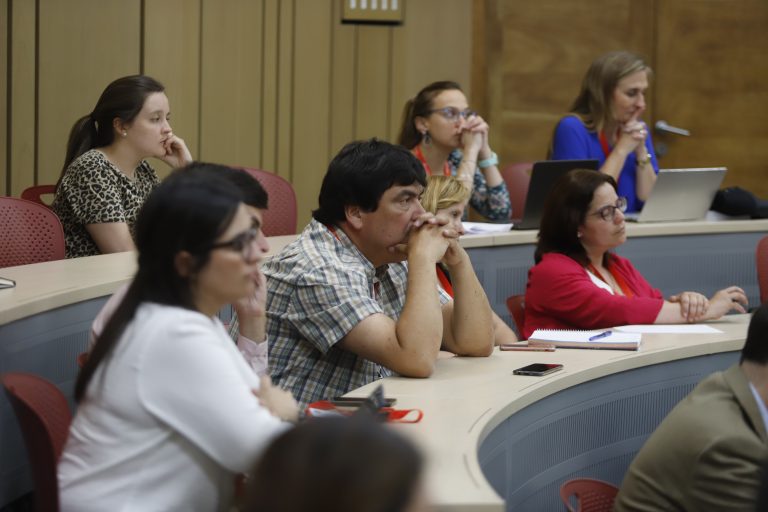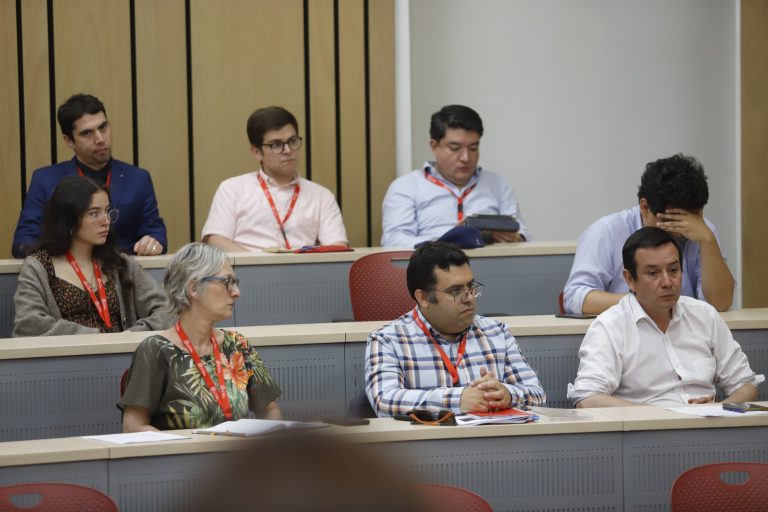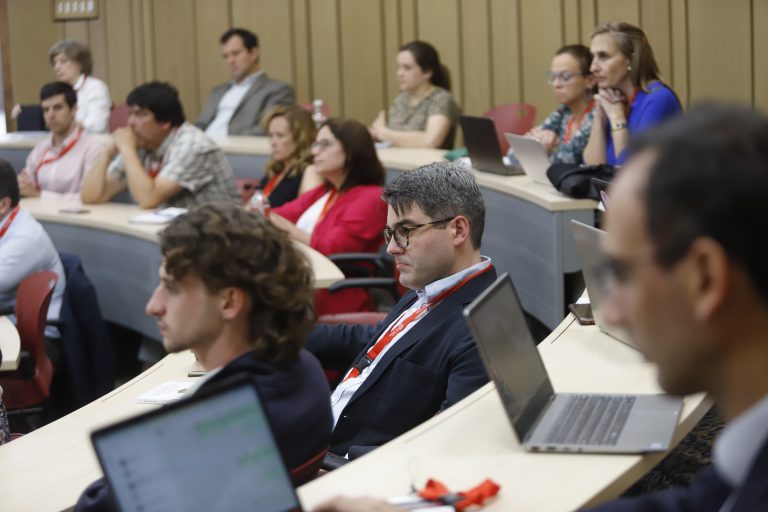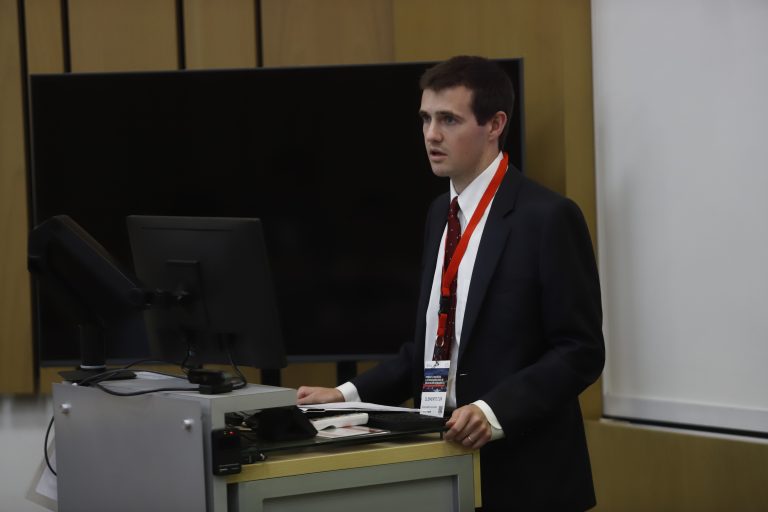El canon hispánico: definición, influencias y cruces
(The Hispanic Canon: Definition, Influences and Crossovers)
14-15 diciembre, 2023 — Universidad de los Andes, Santiago, Chile
Conference Language: Spanish
Tema del Congreso
En The Western Canon (1994), Bloom incluye tres autores hispanohablantes en su selección de 26 genios de la literatura universal: Cervantes, Borges y Neruda. Si bien nadie discutiría el mérito literario de estos tres genios, es casi inevitable la pregunta: ¿solo ellos tres? ¿Dejamos fuera a Lope y Calderón, san Juan de la Cruz y García Márquez…? Podríamos encontrar tantas “graves omisiones” como lectores tenga la obra de Bloom.
Ciertamente, cualquier crítica a esa selección puede extenderse a todo intento de categorizar la producción intelectual y artística de la humanidad: ¿Por qué llamar canónico a este escritor, pero a este otro no? ¿Tildamos de canónico a un autor por la calidad de su obra o por su influencia? ¿Existen cánones relativos a pueblos o identidades culturales particulares con valor universal? Resulta manifiesto que la mera noción de un canon suscita innumerables dificultades, pero rechazar sin más su existencia —situar en el mismo plano a Boecio que a la última novela de moda— parece no menos problemático: algún criterio de calidad tiene que haber para guiar a los lectores, por mucho que sea imposible de precisar.
Pero podemos preguntarnos: si existe tal criterio, ¿puede formularse con objetividad, al margen de las propias limitaciones lingüísticas y culturales? En otras palabras: ¿habría habido solo tres hispanohablantes en la lista, si su autor hubiera nacido en Madrid, Santiago o Buenos Aires? ¿Existe, por lo demás, un “canon hispánico” análogo al conocido canon occidental? Y esos autores canónicos (sea Cervantes, Borges, Neruda o tantos más) ¿han estado relegados al ámbito de su propia lengua, o han podido extender su influencia a lectores y escritores de otros rincones del mundo? ¿Qué pensadores y artistas españoles o hispanoamericanos, y hasta qué punto, pueden ser llamados verdaderamente universales?
Estas preguntas han inspirado el tema del Primer Congreso Latinoamericano de Educación Humanista: El canon hispánico: definición, influencias y cruces. Invitamos a expositores de todo el mundo a conversar sobre la naturaleza y pertinencia del canon occidental y, específicamente, al espacio que ocupan dentro de él los más grandes exponentes de la lengua española en los ámbitos de la literatura, la filosofía, el arte y las demás disciplinas afines.
Este congreso es organizado por la Universidad de los Andes (Chile) con el patrocinio de la ACTC (Association for Core Texts and Courses, Estados Unidos). Nos entusiasman las posibilidades de diálogo e intercambio de visiones por parte de expositores de diversos entornos geográficos y lingüísticos, por lo que los invitamos a participar con ponencias tanto en inglés como en español.
El evento se realizará en el campus de la Universidad de los Andes, en Santiago de Chile, los días 14 y 15 de diciembre del 2023.
Theme Statement
In The Western Canon (1994), Bloom includes three Spanish-speaking authors among his selection of 26 geniuses of world literature: Cervantes, Borges and Neruda. While no one would dispute the literary merit of these three masterminds, the question is almost inevitable: Just the three of them? Are we leaving out Lope and Calderon, John of the Cross and Garcia-Marquez…? We could find as many “serious omissions” as there are readers of Bloom’s work.
Certainly, any criticism of this selection can be extended to all attempts to categorize the intellectual and artistic production of humanity. Why call this writer canonical, but not this one? Do we call an author canonical because of the quality of his work or because of his influence? Are there canons relating to particular peoples or cultural identities with universal value? It is clear that the very notion of a canon raises innumerable difficulties, but to reject its existence out of hand—to place Boethius on the same level as the latest fashionable novel —seems no less problematic: there must be some criterion of quality to guide readers, however impossible it may be to pinpoint.
But we may ask ourselves: if such a criterion exists, can it be formulated objectively, regardless of one’s own linguistic and cultural limitations? In other words: would there have been only three Spanish-speakers on Bloom’s list if its author had been born in Madrid, Santiago or Buenos Aires? Is there, moreover, a “Hispanic canon” analogous to the well-known Western canon? And have these canonical authors (whether Cervantes, Borges, Neruda or so many others) been relegated to the realm of their own language, or have they extended their influence to the readers and writers of other corners of the world? Which Spanish or Latin-American thinkers and artists, and to what extent, can be called truly universal?
These questions have inspired the theme of the First Latin American Conference of Liberal Education: The Hispanic Canon: Definition, Influences and Crossovers. We invite speakers from around the world to discuss the nature and relevance of the Western canon and, specifically, the space occupied within it by the greatest exponents of the Spanish language in the fields of literature, philosophy, art, and other related disciplines.
This conference is organized by Universidad de los Andes (Chile) with the sponsorship of ACTC. We are excited about the possibilities for dialogue and exchange of views by speakers from diverse geographic and linguistic backgrounds and invite you to participate with papers in both English and Spanish.
The event will be held on the campus of Universidad de los Andes, in Santiago, Chile, on December 14th and 15th, 2023.
